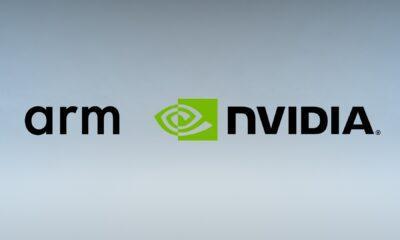Nvidia Corp. has transformed from a fledgling chipmaker to the world’s most valuable company, boasting an astronomical total return of 591,078% since its initial public offering (IPO) in 1999.
This unparalleled growth underscores the company’s pivotal role in the technological revolution, particularly in the realms of graphics processing and artificial intelligence (AI).
Nvidia’s ascent to the top of the market culminated on Tuesday, as it unseated Microsoft Corp. to claim the title of the world’s most valuable company, with a market capitalization of $3.34 trillion.
The company, which debuted on the Nasdaq stock exchange at a modest valuation, has added over $2 trillion to its market cap this year alone, driven by surging demand for its cutting-edge AI chips.
The Early Years: Laying the Foundation
When Nvidia launched its IPO in 1999, the tech landscape was vastly different. Intel dominated semiconductors, and Nvidia was a relatively unknown entity.
However, the company’s strategic focus on developing advanced graphics processing units (GPUs) quickly set it apart. By securing deals to supply GPUs for popular video-game consoles like Microsoft’s Xbox and Sony’s PlayStation, Nvidia established itself as a key player in the gaming industry.
Overcoming Challenges: Litigation and Competition
The path to success was not without obstacles. In the early 2000s, Nvidia faced significant challenges, including a major legal dispute with Intel that temporarily pushed it out of a crucial market segment. The stock also endured three separate annual declines of over 50%, testing the resolve of its investors.
However, Nvidia’s commitment to innovation and strategic foresight kept it moving forward. In 2012, the company introduced graphics chips for servers in data centers, opening a new and lucrative market. Although initial sales were slow, this move laid the groundwork for future growth in high-performance computing.
The AI Revolution: A New Era of Growth
Nvidia’s fortunes took a dramatic turn with the advent of AI. The company’s GPUs, initially designed for rendering video game graphics, proved to be exceptionally well-suited for the parallel processing tasks required in AI and machine learning. This versatility positioned Nvidia as a leader in the AI hardware market.
The release of OpenAI’s ChatGPT in late 2022 was a pivotal moment. As interest in AI applications skyrocketed, so did the demand for Nvidia’s chips. The company’s revenue from data centers, driven by AI-related sales, began to eclipse its traditional gaming revenue. By the first quarter of 2023, Nvidia’s earnings report revealed a jaw-dropping surge in sales, far exceeding Wall Street’s expectations.
A Test of Staying Power
Despite its meteoric rise, Nvidia faces ongoing challenges. Sustaining its current market position will require continued innovation and substantial investment in AI infrastructure. The company’s future success hinges on the broader adoption of AI technologies and the ability of its customers to generate significant returns on their investments in AI hardware.
Vision and Leadership: The Jensen Huang Effect
Much of Nvidia’s success can be attributed to the visionary leadership of co-founder and CEO Jensen Huang. His foresight in steering the company towards “accelerated computing” has been instrumental in Nvidia’s dominance. Under Huang’s guidance, Nvidia has consistently been at the forefront of technological advancements, catching every wave of innovation in hardware.
The Road Ahead
As Nvidia continues to navigate the complexities of the global tech market, its story serves as a testament to the power of strategic vision and innovation. With AI set to revolutionize industries from healthcare to automotive, Nvidia’s role as a key enabler of this transformation positions it for continued success.
Investors and analysts alike will be watching closely to see if Nvidia can maintain its lead in the fiercely competitive AI market. If its past performance is any indication, the future looks promising for this once-modest chipmaker turned AI titan.


 Naira4 weeks ago
Naira4 weeks ago


 News3 weeks ago
News3 weeks ago
 Education4 weeks ago
Education4 weeks ago


 Social Media4 weeks ago
Social Media4 weeks ago
 Technology4 weeks ago
Technology4 weeks ago
 Investment4 weeks ago
Investment4 weeks ago


 Dividends4 weeks ago
Dividends4 weeks ago
 Economy4 weeks ago
Economy4 weeks ago










